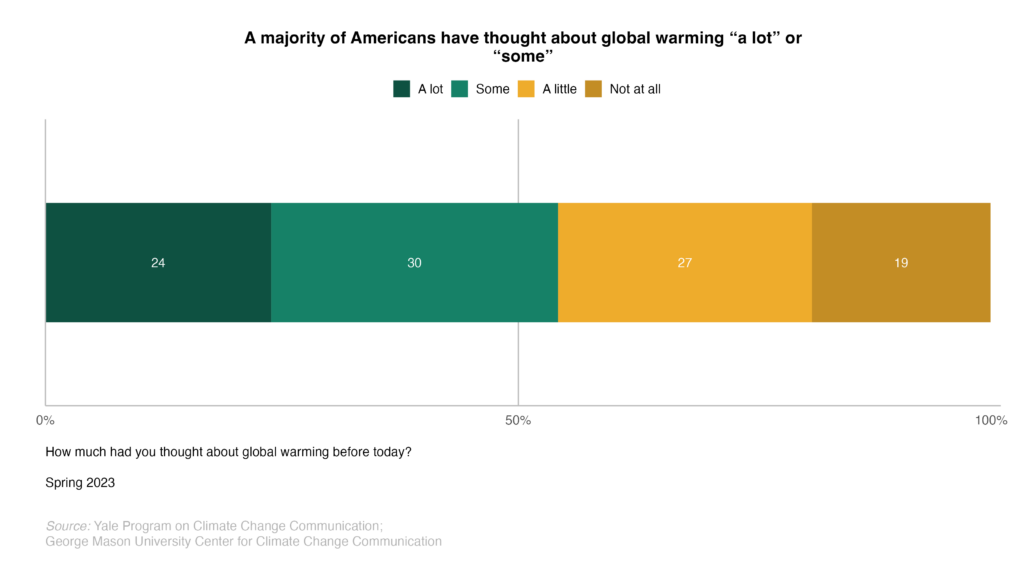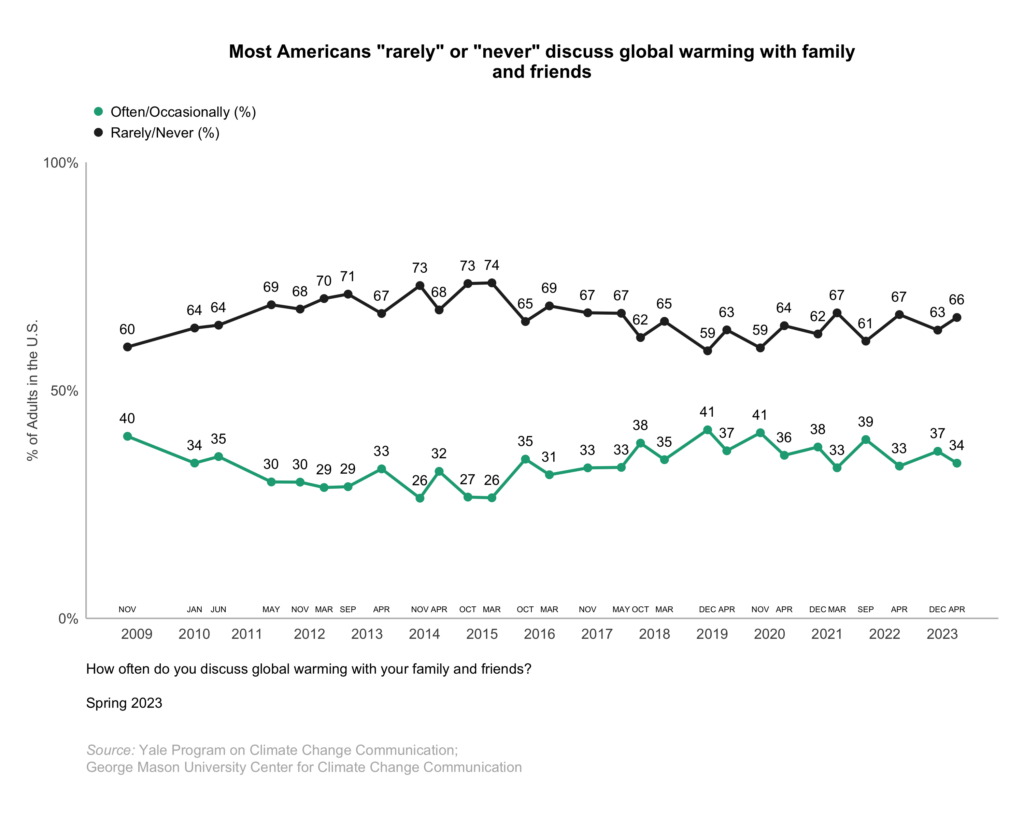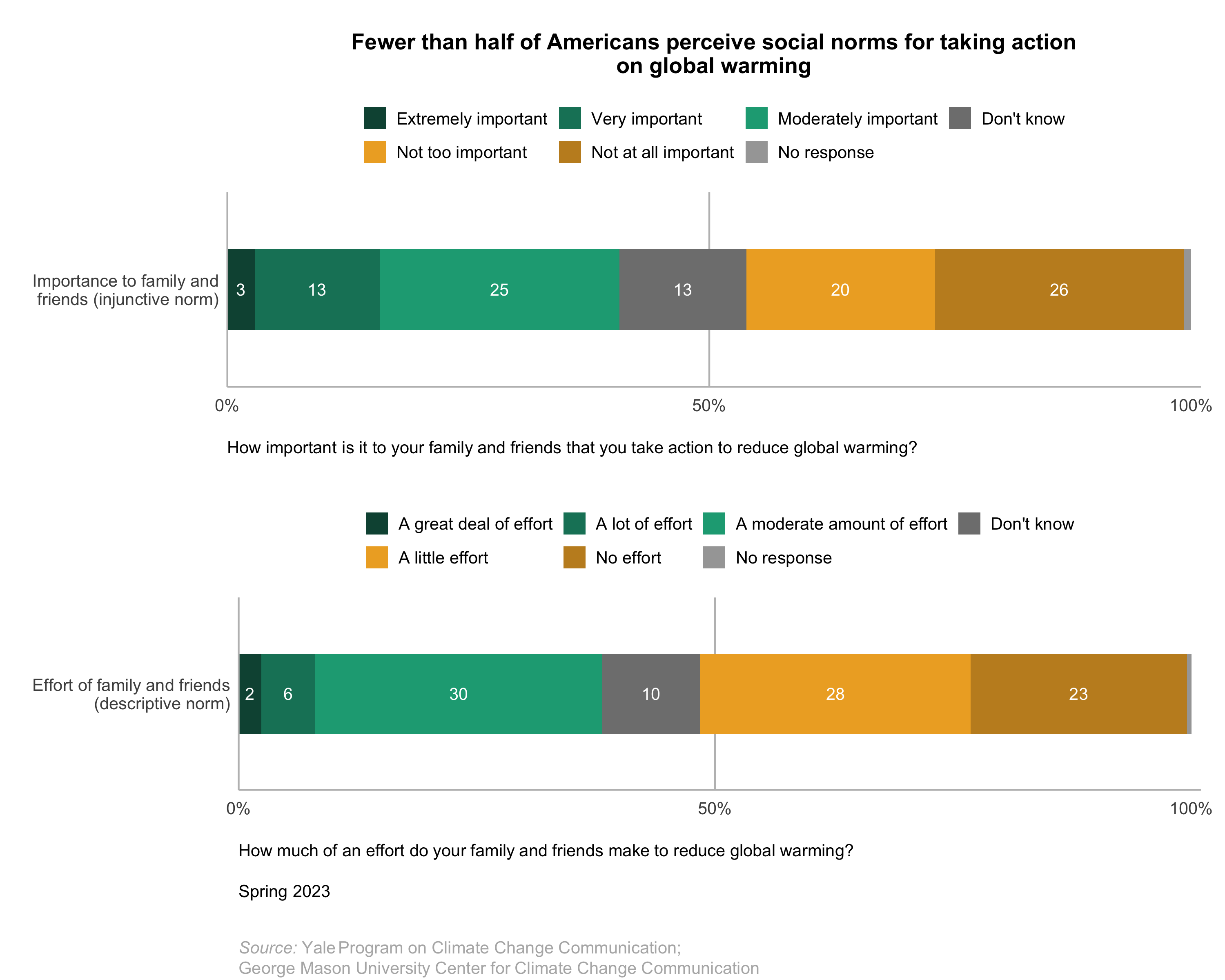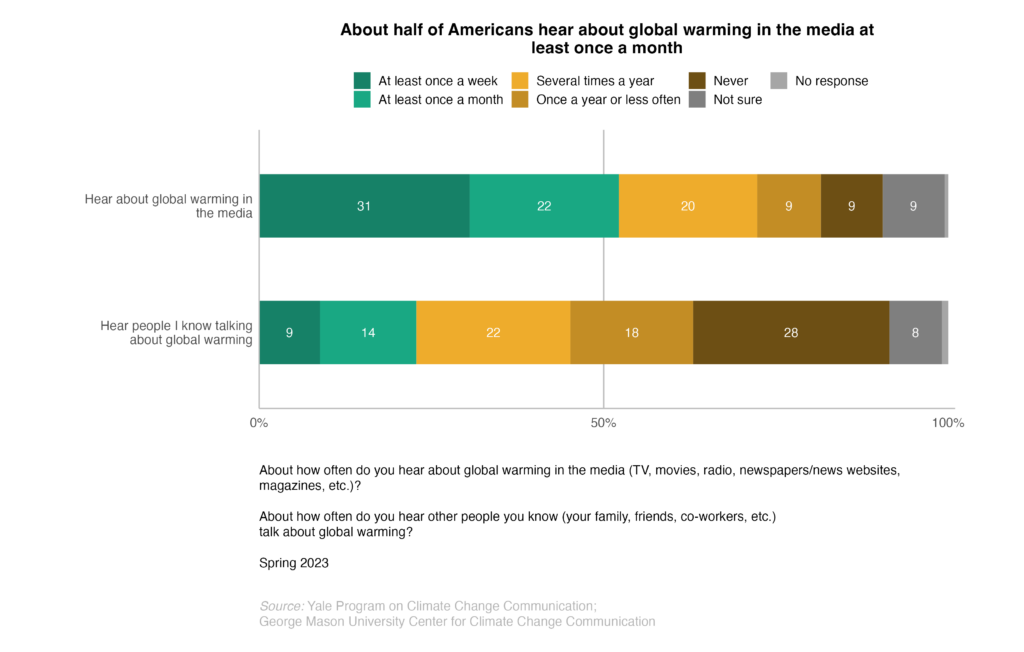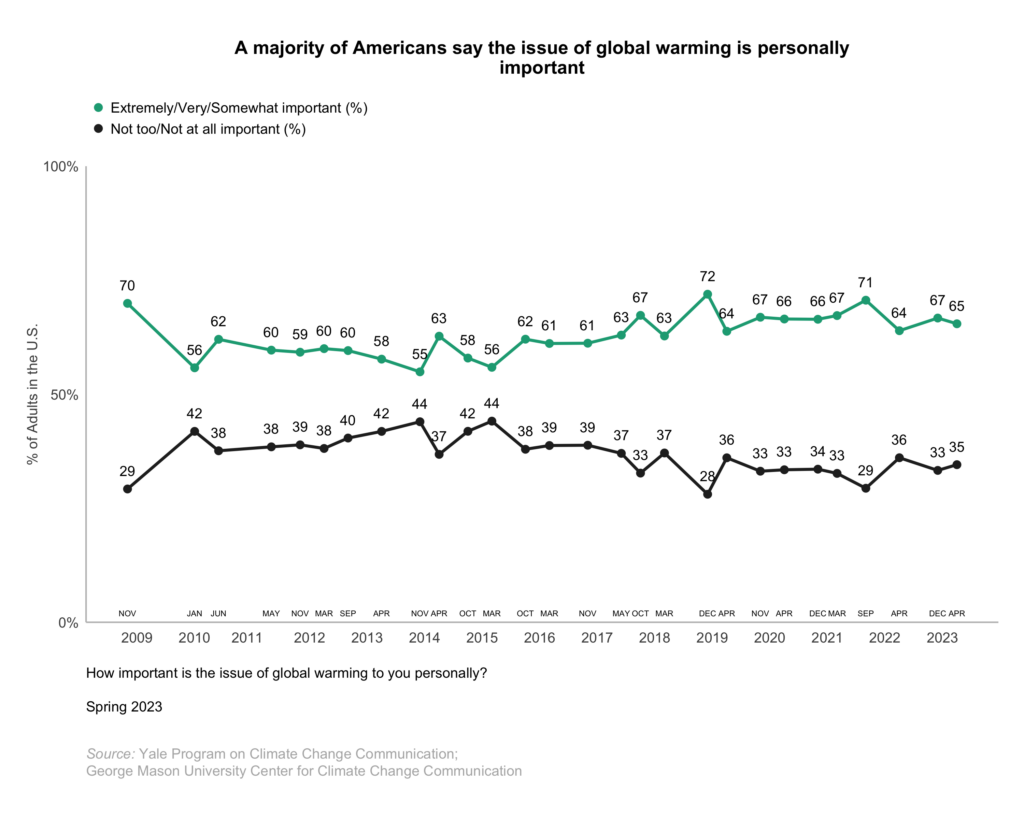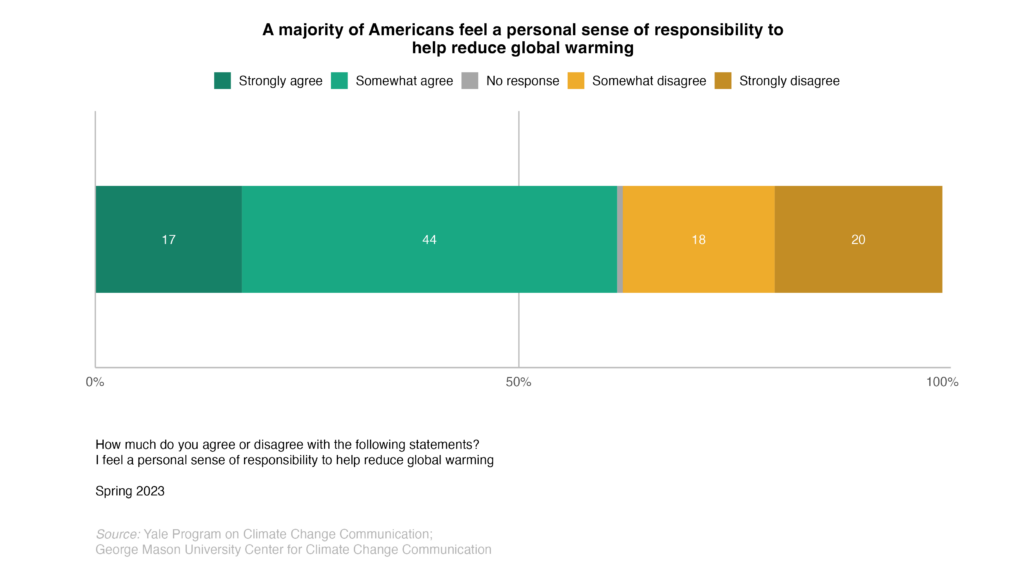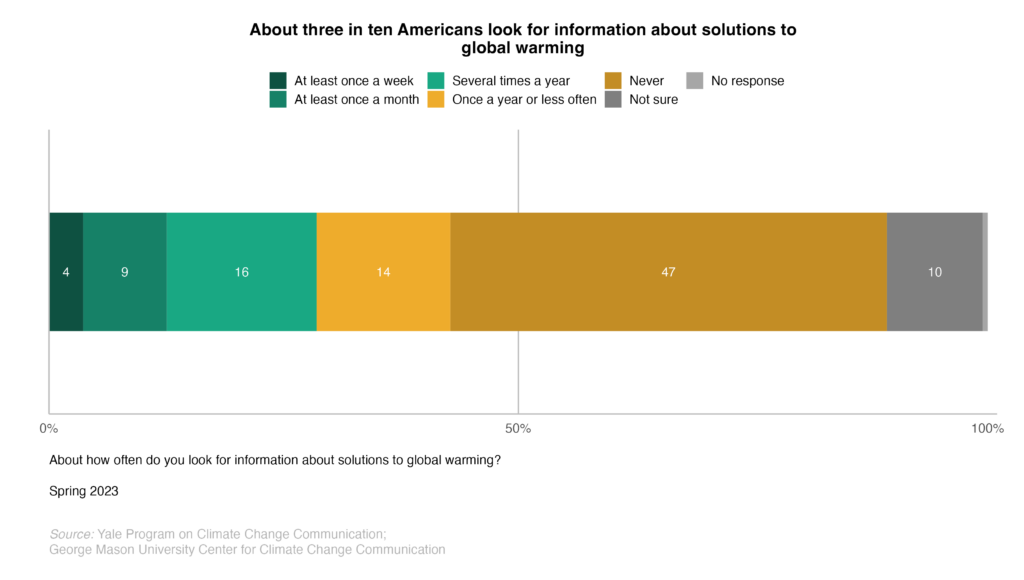Report · Jun 8, 2023
Climate Change in the American Mind: Beliefs & Attitudes, Spring 2023
By Anthony Leiserowitz, Edward Maibach, Seth Rosenthal, John Kotcher, Sanguk Lee, Marija Verner, Matthew Ballew, Jennifer Carman, Teresa Myers, Matthew Goldberg, Nicholas Badullovich and Jennifer Marlon
Filed under: Beliefs & Attitudes and Climate Impacts
4. Personal and Social Engagement with Global Warming
4.1. A majority of Americans have thought about global warming “a lot” or “some.”
More than half of Americans (54%) say they have thought about global warming before today either “a lot” (24%) or “some” (30%). Fewer say they have thought about global warming either “a little” (27%) or “not at all” (19%).
4.2. Most Americans “rarely” or “never” discuss global warming with family and friends.
Most Americans (66%) say they either “rarely” (34%) or “never” (32%) discuss global warming with family and friends (refer to data tables, p. 52), while 34% say they discuss global warming either “occasionally” (29%) or “often” (5%).
4.3. Fewer than half of Americans perceive social norms for taking action on global warming.
Social science research has shown that two types of social norms can have a powerful influence on people’s behavior: injunctive norms (the belief that friends and family expect you to behave in a given way) and descriptive norms (the belief that friends and family are themselves behaving in that way).Schultz, P. W., Nolan, J. M., Cialdini, R. B., Goldstein, N. J., & Griskevicius, V. (2007). The constructive, destructive, and reconstructive power of social norms. Psychological Science, 18(5), 429-434. doi:10.1111/j.1467-9280.2007.01917.x
About four in ten Americans (41%) perceive an injunctive norm, saying it is either “extremely” (3%), “very” (13%), or “moderately” (25%) important to their family and friends that they take action to reduce global warming. Similarly, 38% perceive a descriptive norm, saying their family and friends make either “a great deal of effort” (2%), “a lot of effort” (6%), or “a moderate amount of effort” (30%) to reduce global warming.
Correction Note: Chart 4.3 was updated on September 12, 2023 to correct a text error. No numbers were changed.
4.4. About half of Americans hear about global warming in the media at least once a month; fewer hear people they know talking about it at least once a month.
About half of Americans (52%) say they hear about global warming in the media once a month or more often, while 38% say they hear about global warming in the media several times a year or less often, including 9% who say they never hear about global warming in the media.
In contrast, only about one in four Americans (23%) say they hear people they know talk about global warming once a month or more often, while 69% say they hear people they know talk about it several times a year or less often, including 29% who say they never hear people they know talk about global warming.
4.5. A majority of Americans say the issue of global warming is personally important.
About two in three Americans (65%) say the issue of global warming is either “extremely” (13%), “very” (22%), or “somewhat” (30%) important to them personally (refer to data tables, p. 57). About one in three (35%) say global warming is either “not too” (18%) or “not at all” (17%) personally important.
4.6. A majority of Americans feel a personal sense of responsibility to help reduce global warming.
A majority of Americans (62%) agree either “strongly” (17%) or “somewhat” (44%) that they feel a personal sense of responsibility to help reduce global warming.
4.7. About three in ten Americans look for information about solutions to global warming.
About three in ten Americans (28%) say they look for information about solutions to global warming several times a year or more often, while about six in ten (61%) say they look for solutions once a year or less often, including 47% who say they never do so.
